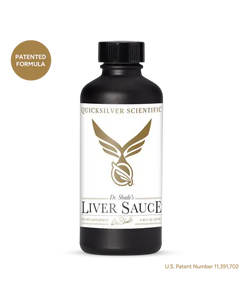
If you were deprived of this ONE mineral, it would not be long before you develop diabetes. You’d be well on your way to developing nerve damage, loss of eyesight, kidney damage, and even dialysis, amputation or Alzheimer's disease as it progresses!
What mineral is it?
CHROMIUM! A mineral we only need in microgram doses per day can make the difference between health and disease. 30 mcg per day is what we are told is adequate intake, but did you know that higher doses around 1000 mcg have been found to be supportive of BRAIN health?* Yes, you heard that right! Chromium can help keep you mentally sharp as you age!
Brain fog, sluggishness, and fatigue all come with consuming too many sugars and carbohydrates. But why? Did you know that the brain is EXTREMELY sensitive to elevations in blood sugar? In fact, there is a term now used to describe a BRAIN ON SUGAR, called TYPE III Diabetes. And Type III Diabetes is linked to none other than Alzheimer’s disease!
If that doesn’t leave you passing on that cookie, consider this:
- Every 66 seconds, an American will develop Alzheimer's disease. By the year 2050, that number is expected to double to one every 33 seconds.**
- Dementia affects 50 million people worldwide and this number will triple by 2050. ***
So, how can chromium help?
In 1957 a scientist discovered a substance in the body called GLUCOSE TOLERANCE FACTOR (GTF), and chromium is the active component of GTF. GTF enhances the action of insulin, so that glucose can be transported into the cells and burned for energy.
Thus chromium enhances INSULIN sensitivity and blood sugar regulation. When the brain loses insulin sensitivity, structural and degenerative changes occur in the brain!
The powerful combination of molecular hydrogen and chromium pack a punch to support the brain, promote a healthy, lean body composition, and support the millions of people dealing with metabolic dysfunction.
*https://pubmed.ncbi.nlm.nih.gov/20423560/





